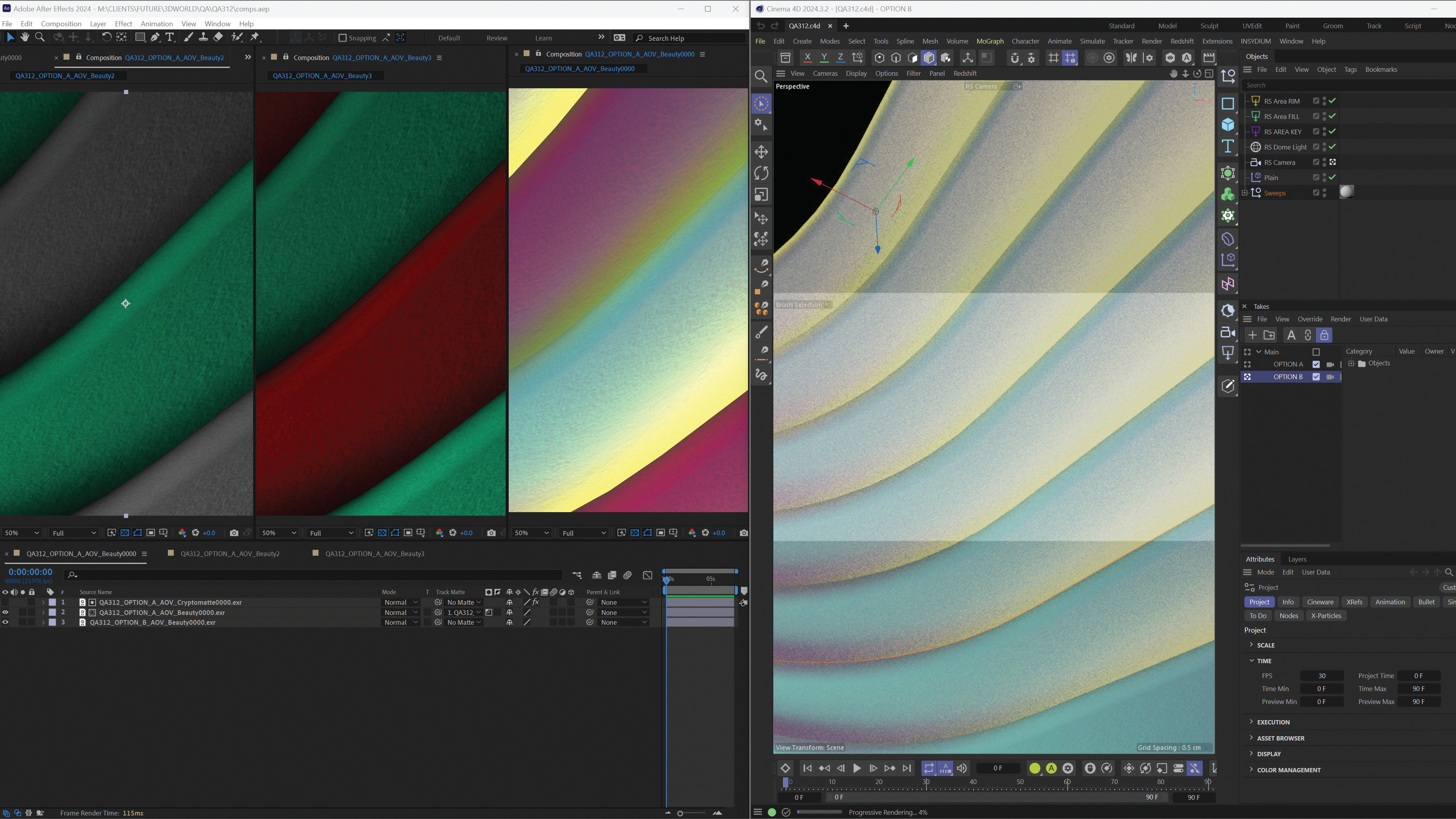20 top tips for great logo design
Avoid motif monstrosities! Follow these great pieces of advice from award-winning designer Paul Wyatt and you'll be on the way to creating the perfect logo for your brand.
There is certainly more bad logo design floating around this world than good. Bad logos usually come about when a company is under the mistaken notion that they can do it themselves - which often results in some well-meaning soul producing a monstrosity using power point and some clip art.
This lacks the understanding which a designer brings to this job; of how typographic and graphical elements can be brought together to accurately represent a company’s core brand values. There’s a whole bunch of 'gotchas' when producing logos which can sometimes be forgotten in the race to the deadline finish-line. Here’s a checklist of 20 tips to help you produce on-brand and targeted logo designs.
Words: Paul Wyatt
01. A logo is not the brand
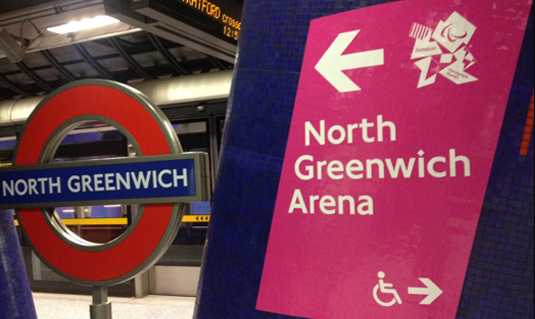
'A logo isn't just the brand' is the most common tip to remember when creating a company's identity.
The 2012 Olympic Games logo by Wolff Olins was universally mocked when released in 2007. Mostly this was due to media restrictions which meant they couldn't explain or show how this logo was going to be used as part of the successful London 2012 games brand and not necessarily in isolation.
If you’re presenting a logo which is mostly going to be seen 'locked up' with a strapline or connected to another visual device then show examples of this in your initial presentation.
02. Gimmicky fonts are vile
Let's not beat around the bush... gimmicky fonts are mostly vile. They're the equivalent of typographic chintz and there's a reason why most of them are free. For sheer professionalism's sake you should avoid them at all costs.
Most gimmicky fonts are too fancy, too weak, and are most likely being used (badly) on a hundred different cheap business cards right now. Keep your font choices classic and simple and avoid over-garnishing your logo.
03. Make sure you hit the right note
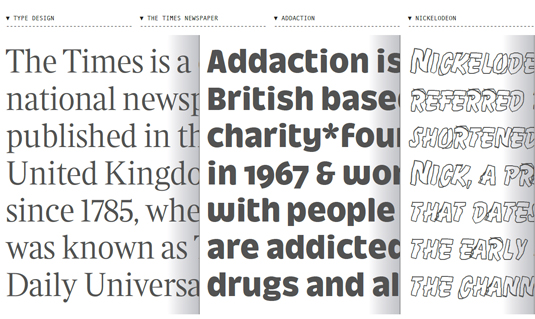
Imagine you were looking online for an accountant and come across a firm called Harewood's Accounting Services which had a logo made up of a weedy serif font and an image of a hare sat on a plank of wood. You'd doubt whether this crowd were worth taking seriously. This fictitious company could well have multiple awards and reams of happy solvent customers, but such a logo wouldn’t inspire any trust or admiration for the services they offer.
A logo represents a business's professionalism and poor visual jokes don't work. Use fonts which sum up the 'brand mood'.
04. Future-proof your logo
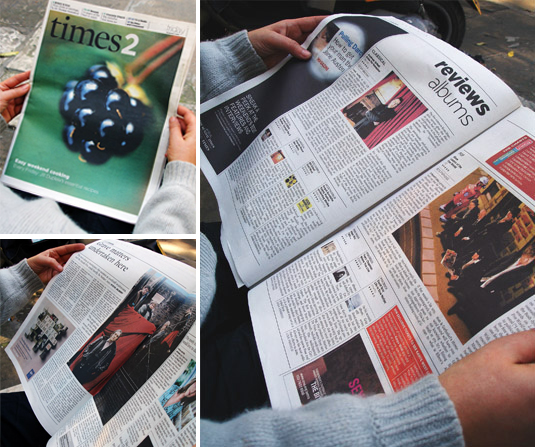
You should strive with any logo to future-proof it. Most identities such as Shell and Kellogg's have changed over time but have kept timeless brand elements whilst subtly 'refreshing' or modernising their typography. There should be elements to the logo that are enduring but you need to be mindful that other aspects of it may need to be adapted in the future for as-yet-unknown visual formats.
05. Question lazy client demands
Look through the logo brief from your client and begin to ask questions about any vagueness or lazy brief writing you might find there. "The logo should be iconic" and "The logo should be memorable" are two extremely clichéd phrases you need to pull your client up about.
A man kicking a chicken dressed as Father Christmas is memorable but for the wrong reasons. So, as with all commissioned design work, you need to manage your client's expectations, set realistic goals and find out what exactly your work needs to convey. Logos become iconic and memorable: they're not created that way.
06. Create appropriate variants
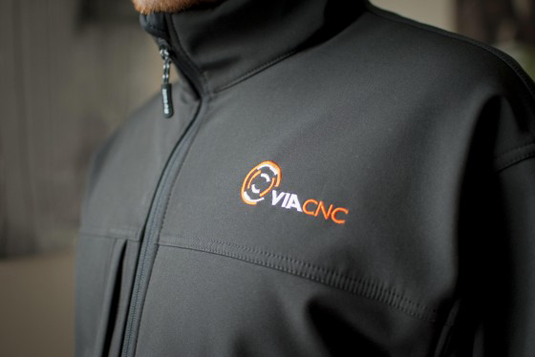
Your logo is amazing, beautiful, and stunning... but only on your 24in full HD monitor. Shrink that baby down to 100 pixels and what have you got? A little undecipherable splodge.
When creating a logo you need to come up with variants that show how it can occupy a real world or computer space. Show these to your clients to indicate how you’ve thought through how (if needed) their logo could be used on a billboard at Old Trafford, on a uniform, or teeny-tiny on a business franked letter.
Think about creating an insignia version of the logo for when it occupies small spaces, and perhaps a clear and a greyscale version. This will go a long way to proving to your client they're getting value for money and a logo that can be used everywhere.
07. Use clip art (yes, you read that right)

In general, clip art in its original form should only be used by men in suits to add 'visual interest' to Powerpoint presentations and not by a creative who is designing a logo. However, you CAN use it as a starting point to create your own logo icon.
Most clip art exists in vector format which you can customise, trace over or refine in Illustrator. It's a great starting point if you're not comfortable with creating your own icons.
08. Create a lock up version
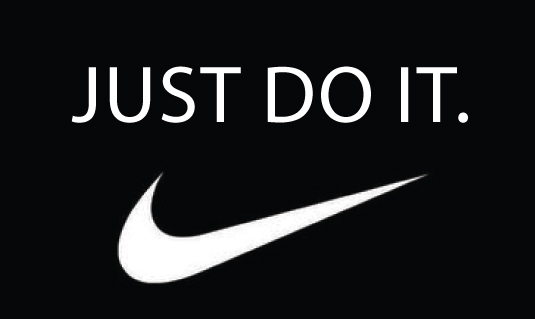
A logo often comes with a tagline (or strapline) that conveys a brand message. Nike, for example, has its swoosh device with 'Just Do It' usually seen underneath. Both elements can work separately but when they exist together this is referred to as a 'lock up'. It’s when both elements have a sense of cohesion between them.
As these elements can be seen separately the rule to remember is not to rely on the tagline to make sense of the logo or vice versa. Your logo doesn’t necessarily have to be a visual representation of the tagline but the two should be equally 'on-brand'.
09. Subtract as much as possible
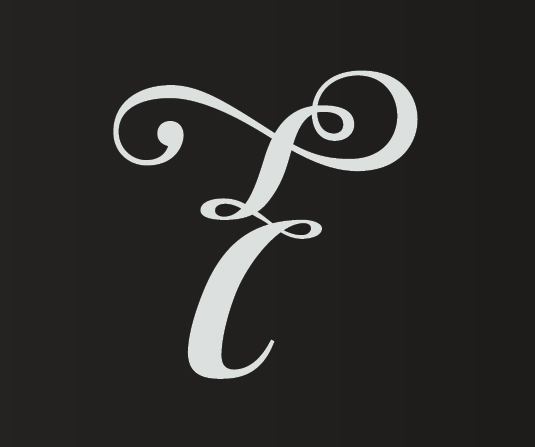
Subtraction is a great technique for removing redundancy in any creative endeavour. It means continually asking yourself questions that begin with, "Does this logo need...", "Does this make sense?", "Does this match the brief" and "Is this self-indulgent?".
If you can't rationalise an element that's part of your logo, the chances are you need to remove it from the overall piece. When your logo is at its simplest, it's probably at its strongest.
10. Immerse yourself in the brand
Before even beginning to sketch out ideas for a logo, spend some time compiling the equivalent of an M15 dossier on your client's brand: who they are, what they do and what their demographic is.
Look at previous iterations of their logo and ask yourself what doesn't represent the brand on these. Then compile a 'dos and don'ts' checklist before your creative work starts.
NEXT: Tips on research, sketching, using vectors and more...

Thank you for reading 5 articles this month* Join now for unlimited access
Enjoy your first month for just £1 / $1 / €1
*Read 5 free articles per month without a subscription

Join now for unlimited access
Try first month for just £1 / $1 / €1
Get the Creative Bloq Newsletter
Daily design news, reviews, how-tos and more, as picked by the editors.

The Creative Bloq team is made up of a group of design fans, and has changed and evolved since Creative Bloq began back in 2012. The current website team consists of eight full-time members of staff: Editor Georgia Coggan, Deputy Editor Rosie Hilder, Ecommerce Editor Beren Neale, Senior News Editor Daniel Piper, Editor, Digital Art and 3D Ian Dean, Tech Reviews Editor Erlingur Einarsson, Ecommerce Writer Beth Nicholls and Staff Writer Natalie Fear, as well as a roster of freelancers from around the world. The ImagineFX magazine team also pitch in, ensuring that content from leading digital art publication ImagineFX is represented on Creative Bloq.
